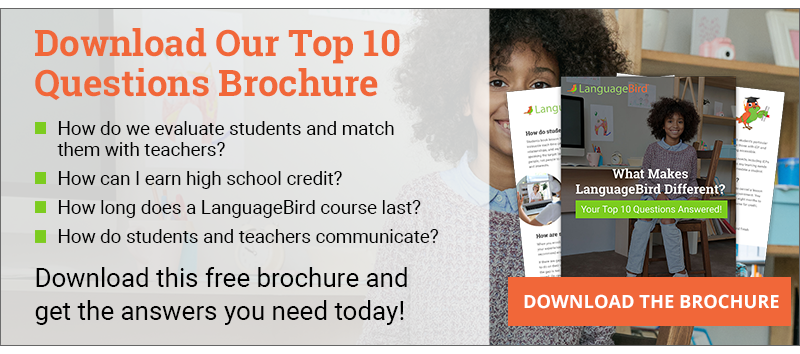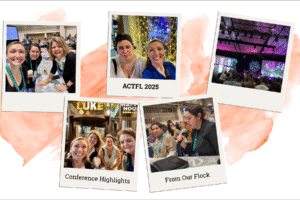
What Does it Mean to Say Someone is a Native Speaker of a Language?
At LanguageBird, all of our instructors are native-level speakers of the languages they teach, and they are qualified to teach their language(s). But what do we mean when we say someone is a native speaker of a language?

Native Speaker By Definition
There are many ways “native speaker” may be defined. LanguageBird considers teachers native speakers if they are any or a combination of the below definitions:
- Someone who has spoken the language from an early age in a home or in a community where they consider the language and culture their first language.
- Someone who has grown up in a multilingual and multicultural environment where they learned both or multiple languages and cultures equally.
- Someone who has learned the language to a native-like level can use the language in a variety of social situations and who would be considered indistinguishable from native speakers.
Being Born Into Language
Most people think a person must be born into a language and culture in a country or community where that language is spoken to be a native speaker, but it is more complex. What about someone who moved to a country when they were an infant, two years old, or five years old, or even older? If they moved to a new country and learned to speak a language different from the country they were from and live their life in that language, why shouldn’t that be their native language as well?
Community Participation Matters
Sometimes people move to new countries later in life and learn the language and culture of that country to the point that the language of their adopted country is more robust than their first language. They may not have been not born into the community, but if they participate in the community, culture, and language to the level of a native speaker and are recognized by other native speakers as having a native-like ability, then the only thing they are “missing” to be defined as a native speaker is the location of their birth.

How Do You Acquire More than One Language in the U.S.?
In the United States, we have a diverse tapestry of languages, dialects, and associated cultures. Someone can be born into a Spanish-speaking, Mandarin-speaking, Russian-speaking, Tagalog-speaking, Arabic-speaking, etc., community and only learn English once they start attending school. They would have two native languages if they continued to participate in both languages and cultures. A person who participated in an immersion school would also have two native languages.
Multiple Variations of Language
It is also possible for someone to be a native speaker of a specific dialect (or multiple dialects!). Consider the dialectal variations across the United States and in English around the world. Consider the differences between accents and vocabulary in American, Singaporean, South African, Australian, Jamaican, British, Canadian, and New Zealander English (to name a few). Take a closer look at American English: we see regional dialects that differ by words (coke vs. soda vs. pop, water fountain vs. bubbler), accent/pronunciation (some regions of the US pronounce Mary, marry, and merry differently, and others pronounce them the same) or phrases/grammar (“The mountain is out” vs. “It’s not cloudy so can see the mountains today”). If you are from New York, you have a different native dialect from South, California, or the Midwest.
Language Bird Offers Many Critical Dialects
The same is true for the languages taught at LanguageBird; each language we offer has many dialects. For example, the German spoken in Austria is different from the German in and Germany, and there is even regional variation within each country. So, our German teachers learned various dialects of German, but they are also all native speakers of German.
Explore the World Through Language
That is the joy of learning a language with LanguageBird; it is an opportunity to explore the world through language and culture with a teacher who has a deep understanding of the language, culture, and regional differences as your guide.




